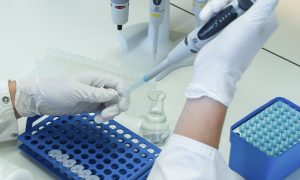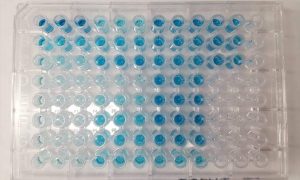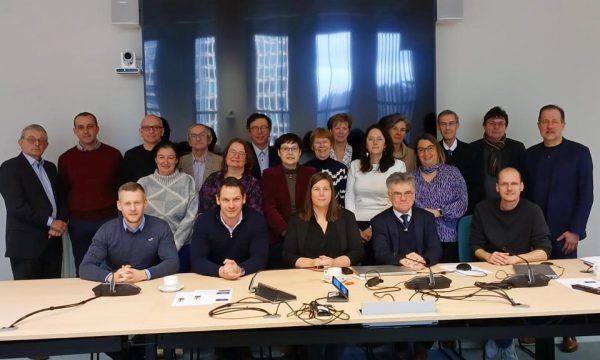Theme Food and Health
We want to use research to help fight malnutrition. We do this from an integrated view of the entire food chain and in close cooperation with a broad group of partners. Research that enables a more diverse range of safe and sustainably produced food is an important focus.
Quick links
With the healthcare sector, we work on feasible, nutritionally balanced meals for different target groups. For the primary sectors, we are developing raw materials with even more interesting components. We are using our knowledge of the link between nutrition and health in animals to better understand how we can use nutrition to increase our resistance to infection and disease of civilization. For people with food allergies, we are sharpening our knowledge of how allergens work and how processing influences them.
Systems approach against malnutrition
The term ‘malnutrition’ covers not only malnutrition but also overeating and unbalanced diets. Because the causes are complex, malnutrition calls for a system approach in which all actors involved work together. In such a system approach, ILVO brings in knowledge about new (mild) processing techniques, new raw materials, a characterization of components and (new) ingredients, nutraceuticals (products and ingredients with a proven medicinal effect), the composition of end products, food in function of individual needs and safeguarding of food safety. In this way we enable our partners to bring a more diverse range of raw materials and food products to the market and to develop nutritionally balanced diets tailored to different target groups.
Collaboration with the healthcare sector
ILVO continues to work on NuHCaS, the research center for Nutrition, Health and Care. The NuHCaS platform brings together actors from the agri-food sector and the care sector and combines research into the impact of nutrition on health. We believe that more cooperation between knowledge institutions, food producers and the medical world will promote the exchange of knowledge and enable clinical tests to be carried out with or without specific target groups in mind.
Link between nutrition and (intestinal) health
We know that animal nutrition has a major impact on the quality of our animal production. ILVO’s food physiologists calculate very precisely what an animal must eat to grow optimally. Intestinal health is central to this, because it also prevents other health problems. In the recently established Gut Health Platform, ILVO, together with external partners, investigates using a multiomics approach the extent to which the knowledge about gut health in animals can be translated to humans. The focus is on strengthening human resilience to infectious diseases, metabolic diseases such as obesity and neurological diseases such as Parkinson’s.
Raw materials with more useful properties
For healthy food, we first need raw materials with a wide range of nutritional properties. In recent years, primary producers have taken important steps to improve the quality of their raw materials. Special attention has been paid to niche crops such as quinoa, and alternative sources of protein such as soy, insects and algae. ILVO supports that process with research into cultivation and breeding techniques, suitable varieties and (in some cases) breeding. But ILVO also searches for bioactive components ‘inside’ the raw materials. Together with international partners, we unravel the biosynthesis routes so that we can make targeted adjustments to cultivation, selection and breeding techniques. In this way we can offer primary producers the opportunity to grow raw materials containing even higher levels of the desired components.
New production processes
ILVO looks for new recipes and production processes and investigates what happens to certain components or ingredients during processing. In doing so, we monitor all the quality aspects: health, safety, composition, properties, taste, aroma and the social acceptability of the production process. In this way we want to create possibilities for a wider range of safe and sustainably produced food products.
The fight against allergens
The use of new ingredients and recipes also brings new challenges. For example, numerous plant-based protein sources such as nuts and soy are known food allergens. Moreover, processing of proteins can affect how well allergens can be detected – and perhaps even the extent to which a food product provokes allergenic reactions. ILVO’s allergen lab is making great progress in the detection of known allergens and is investigating whether protein processing can influence allergenicity. This knowledge should help food producers to develop a wider range of safe foods
for people with food allergies.
Contact an expert








